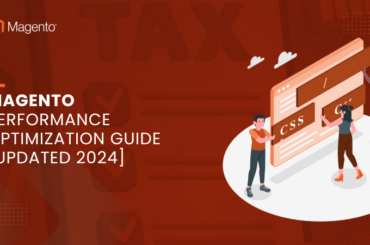Magento Vs Joomla: Choose best platform For Your Business
Last Updated | July 27, 2023
Table of Contents
Magento Vs Joomla
In the last couple of years, we have witnessed a surge of eCommerce businesses for virtually any type of product. This is especially true during the COVID-19 era, as there has been an increasing demand for online shopping. Thus, starting an online store without having to worry about renting a space or keeping inventory has become an enticing business model.
Along with a boom in eCommerce businesses, there has been a surge in eCommerce platforms. We’re spoiled for choice, and sometimes this can make choosing one difficult. Magento and Joomla are two top-notch, open-source eCommerce businesses offering their clients a wide range of features and plugins.
This blog will focus on the debate between Magento Vs Joomla. We’ll present in-depth arguments for each, focusing on key features, SEO, UX, scalability, speed, pricing, and much more.
What is Magento?
A private software company established in 2007, Magento’s open-source platform is written in PHP and is developed using the ZEND framework. With the help of its user-friendly features and plugins, the platform aims to the life of its customers very easy. Its high speed and superior performance make Magento a formidable eCommerce website.
Currently, its owned by Adobe. The platform has catered to many MNCs for almost 2 decades, including companies such as Catbird, Nestle, HP, and Land Rover. Perhaps one thing that could give the platform an edge in this Magento Vs Joomla debate is that it offers clients two different versions— Magento Community and Magento Enterprise.
The first is free to download and use. It’s a completely free version that comes with pre-built features that would suffice running a small eCommerce business.
Magento Enterprise offers its users two plans— Magento Commerce and Magento Commerce Cloud. If you’re looking for Magento web development services, then get in touch with Folio3.
What is Joomla?
Much like Magento, Joomla is an open-source CMS that helps businesses create their own websites. The platform was established in 2005 and has since then gained a considerable amount of popularity. Moreover, the platform is also written in PHP language and contains an SQL database.
Depending on your business model, you can either opt for the free version of Joomla or upgrade. An upgrade will account for three types of versions— personal, business and agency.
Magento Vs Joomla: Key Features and Functionalities
As we’ve already mentioned, both platforms provide their users with a host of top-notch features to help run their business smoothly. However, by many standards, Magento takes the cake in this facet of the Magento Vs Joomla debate. Let’s take a look at why many prefer its features over Joomla’s.
Firstly, Magento has successfully integrated a range of features designed to make your customer’s experience a happy one. This can severely impact repeat clients. Some of the features offered under Magento Commerce include Visual Merchandising, PCI Compliance, order management well as automated sales targets, and advanced catalogue searches. Look into Folio3’s Magento B2B extension development for your eCommerce business.
While these are primarily B2B functionalities, there’s more in store for business owners, such as expedited restocking, quick reordering, payments on accounts along with requisitions list, and handling large orders.
Compared to this, Joomla offers its users a different set of facilities such as document management and blogging. However, a major issue many people report is you’ll have to download and install plugins to access eCommerce functionalities.
Magento Vs Joomla: SEO & Marketing
Another interesting facet in the Magento Vs Joomla debate is that of search engine optimization (SEO) and marketing. Thanks to its open-source and self-hosting, Magento can allow its users to customize their own web stores and design them better for SEO.
In addition to this, Magento comes with some built-in SEO tools to help eCommerce businesses on their platforms to rank higher on search engines such as Google. These tools will help you formulate product meta, URLs as well as sitemaps, and image alt texts.
When it comes to marketing, your Magento platform allows you to offer your customers promotions, private sales as well as increase engagements on your website. You can reach out to your clientele effectively through the help of email marketing, newsletters, and click-to-chat buttons on your storefront.
You can also post testimonials on your website to add legitimacy to your products and business.
Magento Vs Joomla: Scalability
A business’s scalability refers to its ability to grow without being hindered by its own structure and resources in case of a rapid increase in production. This is an extremely important goal if you plan on taking your business to the next level.
Scalability indicates your website’s proficiency while dealing with an influx of orders and inventory; an occasion would be Black Friday sales. In when it comes to Magento Vs Joomla, the former’s powerful inventory management system is designed to hold countless products and can handle up to 50,000 website visits hourly.
It’s for these reasons that Magento comes highly recommended to those businesses who are looking to scale their business.
When it comes to Joomla, it’s more content-centric. Thus, while Magento can handle higher volumes of inventory and visits, Joomla would be ideal for more content.
Magento Vs Joomla: Speed & Performance
In the next part of this Magento Vs Joomla debate, we’ll talk about the speed and performance you can leverage from each of these platforms. When analyzing these performance metrics, the most important thing to keep in mind is website speed. Suppose you visit a website for the first time. What happens when it takes a long while to load? You exit the page.
This is terrible for your bounce rate— an important metric by which Google and other search engines rank your website. While we can’t say definitively, many agree that the performance of Joomla is stronger than that of Magento. This is because the platform provides significantly lesser plugins to its users.
However, if you stay updated with the newest version of Magento, speed and performance will not be as big of an issue.
Magento Vs Joomla: User Interface
We need to realize that not every eCommerce business owner is tech-savvy. That’s why we’ve included the user interface as a measure in this Magento Vs Joomla argument. While they both require a bit of coding to customize, Magento is thought to be a one-stop solution with numerous features and facilities.
The coding is significantly easier than the latter and thus has earned the title of user-friendly. Moreover, its admin page is designed quite simply and thus has earned the title of user-friendly. Joomla is thought to be more complex than Magento overall.
Magento Vs Joomla: Support
Having sturdy customer support in place is an important feature for any website to have. Magento support services come in two different levels in terms of support— Magento Open Source and Magento Commerce. If you opt for the Magento Community, then your business can only receive technical assistance from official sources such as the Help Center.
However, if you’re a user of Magento Enterprise, then you’ll receive high-end customer support and help through live chat as well as email support. Joomla offers the same customer support such as forums, chats, and email support.
Magento Vs Joomla: Extensions and Plugins
While both platforms come with an extensive arsenal of extensions and plugins, Magento’s is far more impressive. As a user, you’ll have access to an estimate of 4000 free and paid extensions. These extensions and plugins cover areas such as finance, marketing, customer support, as well as fulfilment and shipment.
Magento Vs Joomla: Pricing
This is perhaps the most important aspect of the Magento Vs Joomla argument when it comes to deciding which platform you need to run your eCommerce business through. You’ll incur many different expenses while setting up your website— installing extensions and plugins, themes as well as applications.
As already mentioned, Magento is free to download. However, it does have a paid upgrade which depends on your business’s yearly gross merch as well as its average order value. If you go with the Magento Commerce version, it’ll set you back $22,000 while cloud Edition is $40,000.
Joomla has one free version and 3 paid ones— Personal ($99), business ($199), and Agency ($399). However, what makes Magento worth its price point is that its customers can enjoy top-notch features without anxiety.
Final Words
In conclusion, Magento Vs Joomla is a debate that will continue on and one that aspiring online business owners need to pay heed to. While they’re both good in their own way and methods, Magento takes the cake in terms of price point, the quality of features provided as well as SEO and marketing and scalability. Thus, we recommend that new eCommerce businesses opt for this platform.
FAQs:
Q1. How is Magento better than Joomla?
A. Magento has a better bang for the buck, offers its customers more extensions, scalability, and SEO marketing features which is why it’s the better choice out of the two.
Q2. Magento or Joomla: What is a better eCommerce solution?
A. Magento is the more economical eCommerce solution out of the two.
Q3. Is Magento cheaper than Joomla?
A. Yes, including the number of premium extensions and plugins, it is totally worth the cost.
Q4. How to find Magento professionals in UAE?
Folio3 offers website development for Magento in UAE.
Q5. What is the development cost of Magento in the USA?
A. Folio3, a US-based eCommerce solutions provider, has been developing Magento for years. According to their experts, a Magento developer can cost you anywhere between $15–$250 an hour. This generally depends on the level of work required and the time limit.
Q6. Is Folio3 affordable for Magento Development?
A. Folio3 is an affordable Magento development company, offers various Magento Pricing plans. Contact us for our pricing plan.












